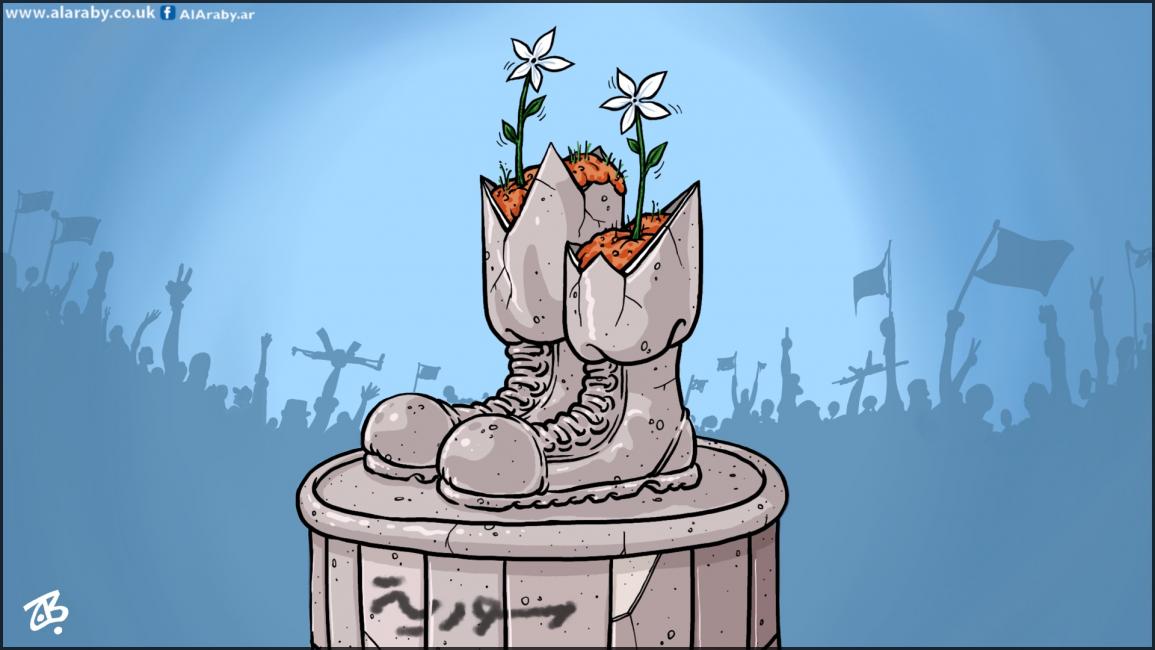After 14 years of sacrifices that claimed the lives of hundreds of thousands of martyrs and displaced millions, the Syrian people, without foreign interference, have turned a dark page in their history. In doing so, they have also showcased the tolerant and civilized face of Syria, distancing themselves from the mentality of revenge that some feared would prevail. This mentality, in part, contributed to the delay in the regime’s fall.
Transitional Government with Different Features: Where is the New Syria Headed?
Once Syrians have had time to celebrate their victory and fully embrace the reality that Assad and his regime are gone for good—an acceptance that should not be delayed—they must focus on the formidable challenges ahead. The transition to a post-Assad Syria will be perilous, particularly with external forces, including Israel, aiming to destabilize the country and prevent its peaceful transition. To face these challenges, Syrians must act quickly and collectively, contributing whatever they can to ensure a smooth and peaceful shift toward security, prosperity, sovereignty, and stability. This can only be achieved through careful prioritization and proactive planning to address the challenges that will inevitably arise.
- Restoring Security and Order
The first priority must be to restore security and halt the chaos that threatens to engulf the country. This involves stopping the looting of public and private property, securing army barracks and weapon depots, and formulating a clear plan to disarm individuals and armed groups, limiting weapons to official state institutions. This is crucial to preventing external interference and internal fragmentation—similar to the Libyan model. To this end, the swift reorganization and activation of the military and police under the Ministry of the Interior is essential. Security and military leaders, particularly those from the old regime, must be held accountable to avoid any efforts at counter-revolution. As part of this, a transitional justice system should be put in place to ensure that individuals responsible for war crimes are held accountable for their actions.
- Reactivating State Institutions
The second priority must be the reactivation of state institutions and government agencies, including ministries and service departments, to encourage people to return to their normal lives. Rebuilding the economy and restoring public and private sector activity across the country should be a key objective. This will help rebuild trust and create a sense of normalcy as soon as possible.
- Unity in Managing the Transition
The Syrian political forces must agree swiftly on how to manage the transitional period to avoid any power vacuum. As the opposition’s Political Affairs Department works toward forming a transitional government, it must take care not to appear as though it is seeking to monopolize power. One of the greatest risks during such transitional periods is the division and infighting among the forces that overthrew the old regime. History has shown that these conflicts can hinder progress and even allow the old system to reassert itself. For this reason, it is crucial to involve all factions in the government formation process, ensuring that everyone feels represented and included in the future of the country.
Given Syria’s political diversity and the various social groups within it, the transitional government must be as inclusive as possible, representing the broadest spectrum of Syrian political forces and geographical areas. The government should be treated as the civilian façade of political power, ensuring that it includes individuals who are acceptable to the international community while avoiding potentially problematic figures. Once established, this government must draft an integrated plan for the transitional period, which should include the formation of a constituent assembly tasked with drafting a new Constitution within a specified time frame. This Constitution would then serve as the foundation for elections, based on the political system agreed upon by the Syrian people.
- Addressing People’s Immediate Needs
The experiences of other countries in the Arab Spring have shown that revolutions raise great expectations. To gain and maintain the trust of the people, it is essential that the new government delivers tangible improvements in their daily lives. This requires addressing immediate concerns such as food security, basic commodities, fuel, transportation, communications, electricity, and water. The government must act quickly to stabilize these sectors, which will help foster a sense of change and progress among the population.
It is equally important to respect Syrians’ personal freedoms and individual behavior, as long as they do not contradict public norms. Syria is a diverse, multi-religious, and multicultural society, and under no circumstances should it be forced to adopt a rigid or extremist vision, such as that seen in Afghanistan. Imposing such policies would risk alienating the people, pushing them away from the new government and creating a situation similar to Egypt’s 2013 experience.
In summary, the road ahead for Syria is fraught with challenges. However, with unity, clear planning, and a commitment to the values of justice, security, and inclusivity, Syria has the potential to transition toward a more peaceful, stable, and prosperous future.
Marwan Kabalan is a Syrian academic and writer. He holds a PhD degree in International Relations. He is the Director of Policy Analysis at the Arab Centre for Research and Policy Studies.
This article was translated and edited by The Syrian Observer. The Syrian Observer has not verified the content of this story. Responsibility for the information and views set out in this article lies entirely with the author.


